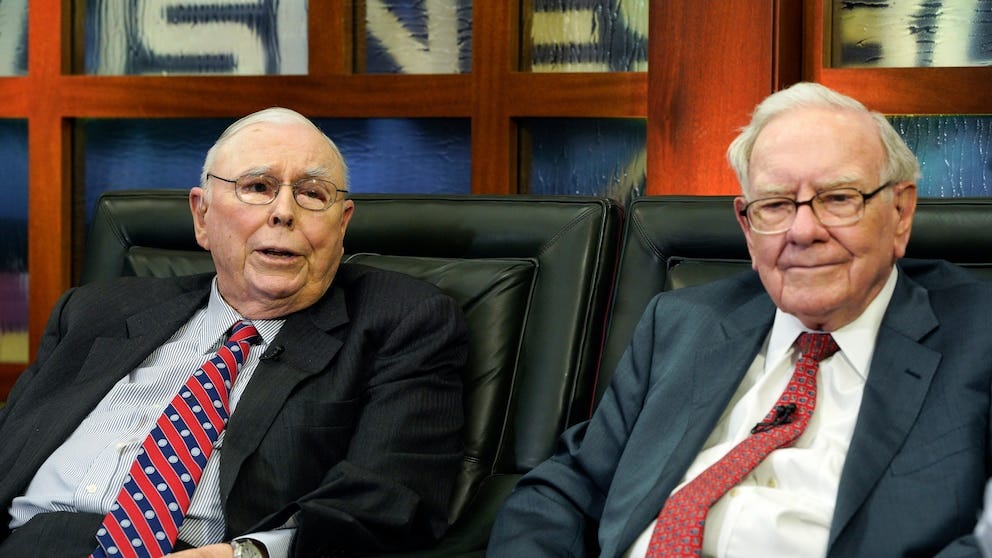First Draft #29: a newsletter on public language
Reading speed; climate jargon; small talk; the best of the number twos
David Cameron read 140 pages in one day — should we be impressed?
A detail from The Sunday Times write up of David Cameron’s return raised a snigger. Tim Shipman wrote:
[Andrew] Mitchell will unveil a new government aid strategy on Monday. Cameron read all 140 pages of the paper on Friday. “This is a guy with a huge brain and huge reach,” a Foreign Office source said.
One observer said it was “mildly concerning” that people in government are impressed by a minister reading his own department's whitepaper. Others baulked at the notion 140 pages constitutes a lot of reading. And some questioned the statement’s veracity: “I think it is impressive. I just don’t believe it,” wrote one X user.
But assuming it is true, should we be impressed? Does reading 140 pages in a day really suggest — as the article implies — a “huge brain”?
The average adult can read 238 words of English per minute (speeds differ across languages). Assuming each page contains around 500 words, Mitchell’s report should take five hours to read; technically enough to fit in a single working day, but not if you’re as busy as a Foreign Secretary ought to be.
Safe to assume, then, that our former PM reads more quickly than most. And rapid reading really is a sign of cleverness. A recent German study found that fast readers are likely to have higher memory capacity and greater “fluid intelligence”. This fits with accounts of Cameron as Prime Minister: he was reportedly an early riser and diligent reader of briefing papers.
But there is reading and there is reading. The fastest reading speed for English, recorded in lab conditions with full comprehension, was 737 words per minute. But this was in an optimised setting, with words flashing up at a single point. This shows reading speed is constrained not just by cognitive ability but physiology: there are limits to how quickly the human eye can focus on and process words on a page.
Come up against those limits and comprehension deteriorates. At this point we're usually no longer reading, but skimming. This skill — glancing over a text to find a specific word or piece of information or to simply get a sense of the contents — is not to be sniffed at, especially at the top of politics where time is precious and information is endless.
Adeptness at skimming aligns with the character of a man once known as the “essay crisis” prime minister. But does 140 pages in one day suggest an exceptional intellect? No, says former political adviser Sam Freedman: “If you have experience of them you can skim 80%+ of any Whitehall policy paper. There's a lot of repetition and blah.”
Shipman’s line suggests admirable conscientiousness on the part of our new Foreign Secretary. But it says a whole lot more about a government in which basic professionalism is regarded as extraordinary. @AlexDymoke
Jargon buster: High Level Expert Group on the Net-Zero Emissions Commitments of Non-State Entities
If there was ever an organisation in need of a straightforward name, it’s the UN group for fighting greenwashing. Instead, we have this: the High Level Expert Group on the Net-Zero Emissions Commitments of Non-State Entities — or “HLEG”, to use the abbreviation on the press release. It was too much for climate journalist Megan Darby: “Ban the UN from naming things. I am serious,” she wrote in a blogpost. She has a point. With the start of COP28 comes the annual reminder of just how jargon-filled the world of climate change is, with acronyms and opaque terms at every turn (SLPPS? Global Stocktake? IPCC?). It’s a serious problem for a movement whose success depends on public buy-in. So, yes, let’s ban the UN from naming things. Give The Draft the job instead. @AlexDymoke
The lost art of small talk
American students are being taught small talk: “lessons in interpersonal communications”. British teachers are also having to clue pupils up on basic rules of conversation. Taking turns, establishing names, and making eye contact all suffered during the pandemic.
Future First Lady Louisa Adams wrote in 1818 that small talk is “one of those arts that everybody feels, but few understand”. She put it first in a list of instructions for creating a presidential candidate. But the truth is these initiatives would benefit everyone. Improve your small talk, and you will improve your communication skills more generally.
Tutored to the Victorian upper classes, interest in small talk spread via a boom in etiquette manuals. But it’s since gone out of style. Often derided as embarrassing, pointless, a waste of time, President Obama tried to cut it out.
Attitudes vary by geography. Swedes are happy with silence (prizing ‘lagom’ or ‘just the right amount’ of everything). And while British people may default to the weather, that’s tricky in less changeable climes.
So, how to do it? Debrett’s says don’t try too hard with witticisms or opinions: “Small talk is by its very nature light and inconsequential.” Inconsequential, perhaps, but not unimportant. Small talk builds relationships, defuses conflict and wards off loneliness. And research shows it is often the precursor to more meaningful conversations. Small talk leads to big talk.
In Mad Men, Betty Draper visits her childhood home and reminds her brother: “Daddy used to fine us for small talk, remember?”. If anything, we should be giving out rewards. @james_carroll
Argument of the month
Politicians and journalists often rank as the least trustworthy professions. Yet some of the most jaw-gapingly audacious acts of spin occur not in parliaments or newsrooms, but in court. This week, a lawyer acting for Young Thug, a rapper facing racketeering charges, went viral. His argument? “Thug” means “Truly Humbled Under God”. If he grows tired of the law, a career in brand strategy beckons. @AlexDymoke
Just a second
Charles Munger, who has died at the age of 99, was the Penny Lane of investing, the brilliant man who never made it to number one. At least not in Berkshire Hathaway, Warren Buffett’s firm, which Munger served faithfully and lucratively for more than 40 years.
The psychology literature yields a template for the ideal number two. Be loyal to the leader. Don’t try to usurp him or her; keep your ambition in check. Define parts of the organisational responsibility that are yours and yours alone. Be sure the leader agrees that, when you speak, you do so on behalf of the company as a whole, with full authority. We are going to hear a lot about deputies in the month to come if the Democrats and the Republicans both field candidates who might struggle to serve a full term.
Biden and Trump could both do with a Munger on their team. As a young man he earned his way through the Army and college by playing cards, during which he learned the vital skill of folding early. The key to his investment philosophy was, to cite another great number two, surround yourself with Suspicious Minds. In the board meetings which attracted crowds of shareholders to hear him talk about what Benjamin Franklin would have done in any given situation, Munger often referred to the Lollapalooza effect; the tendency for leaders to gather apostles around them who reinforce all their prejudices.
Munger was renowned for his fortune-cookie wisdom and practical homilies. He made the anthologies with his line “All I want to know is where I'm going to die, so I'll never go there." Sadly, he went into hospital in Santa Barbara. Maybe he never found out and so farewell to the American Pie, the Rocket Man of his generation, the best of the number twos. @PhilipJCollins1
LANGUAGE AND BEYOND
Lyndon B Johnson’s notes from the Cabinet meeting immediately after the assassination of President Kennedy, which took place 60 years ago this month. It’s a masterpiece of concision and plainspeaking, bookended by two statements of admirable directness: “The President is dead” and “I need you”.
Following Limerick-born Paul Lynch’s Booker triumph, a Twitter thread succinctly explains why a nation of little over five million people has come to dominate the literary world.
A fascinating piece on how Qatar became the world's hostage negotiator. “In recent years, as kidnappings of Americans have changed from an enterprise largely carried out by insurgent groups to one regularly employed by states (like Iran) and entities controlling territory (like Hamas), U.S. officials seeking to recover Americans taken hostage have benefitted from Qatar’s long-standing relationships.”
Is the bedbug plague real? Or is it all in the mind? Clive Martin investigates for the Sunday Times (£)
As COP28 gets underway, a helpful climate jargon buster explains the terminology – from 1.5 degrees to NDCs to the UNFCCC.
Iphone-ification, Trump-ification, AI-ification. The New Yorker reflects on the incessant “-ification” of everything.
Coinage of the month: Yaar Parivaar. Literally translated as “Dude Family”, Yaar Parivaar refers to a new style of urban living taking root in India, when single middle-aged people move into multi-person households. These arrangements offer companionship and bill-sharing without the “stress and drama” of marriage. Read more here.
Teaching young people rhetoric can cure many social ills, argues this NYT guest essay “Lest the idea of rhetoric be dismissed as obscure or fussy for its association with antiquity or philosophy, few subjects are more straightforward to teach; it’s the soccer of academic subjects.”
In honour of Shane MacGowan, arguably his greatest song: A Rainy Night in Soho. The luminous final lines feel especially resonant today:
Now the song is nearly over
We may never find out what it means
Still there's a light I hold before me
You're the measure of my dreams
The measure of my dreams
New from us
Phil’s Times column the local government funding crisis.
Follow us
Last thing…
At The Draft we’re specialists in writing and rhetoric. We help businesses and public figures make their case more persuasively. If you could use our help, get in touch. And if you enjoy First Draft, forward it on. Thanks for reading.






I heard this from SCOTUS members on CSPAN. Lots of reading. https://www.c-span.org/video/?c5082687/user-clip-justices-discuss-everyday-workload-lots-reading